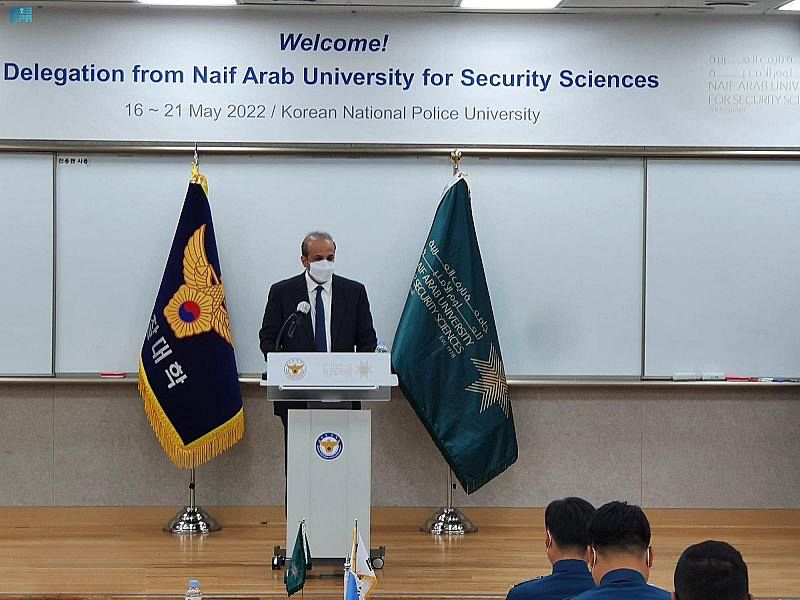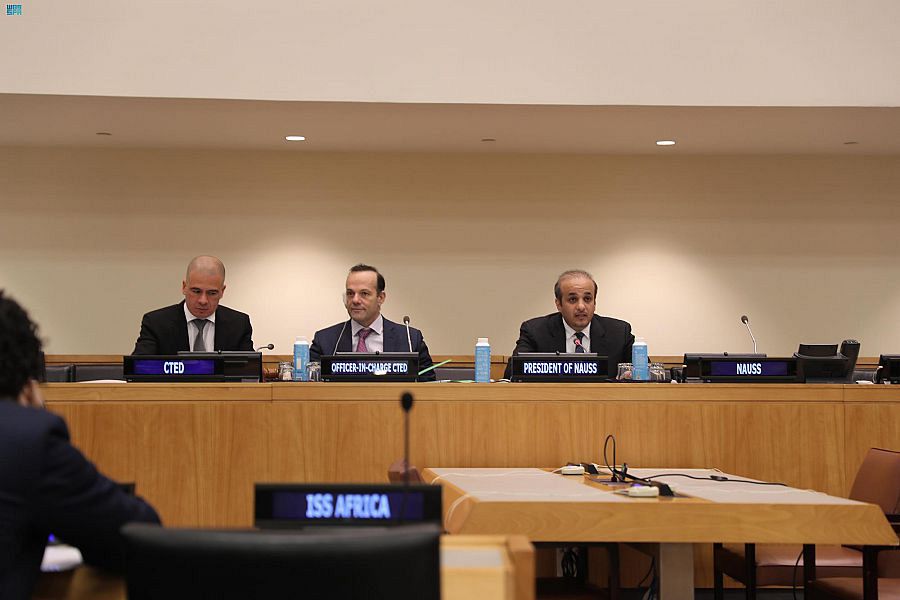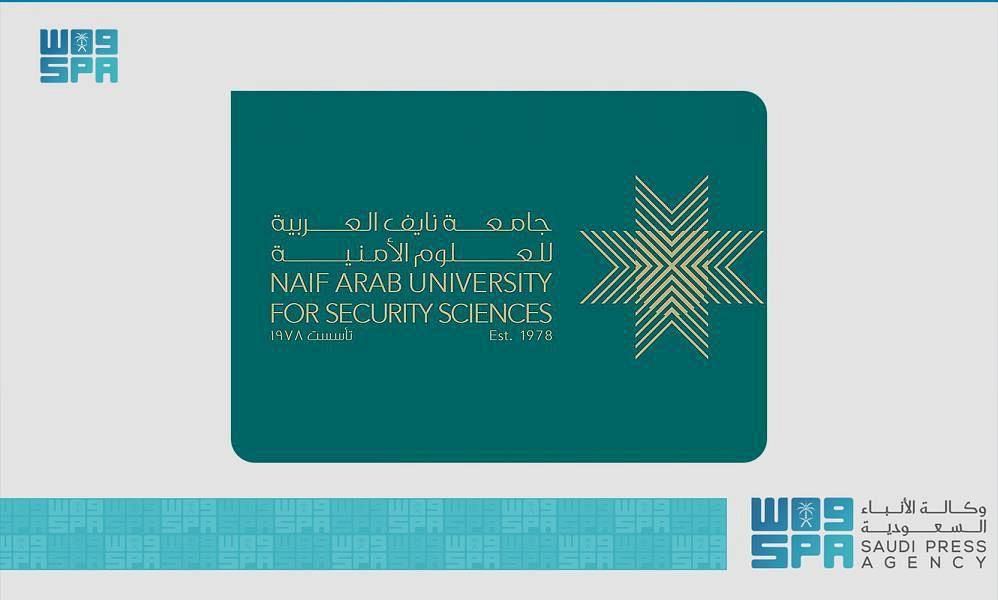
Naif Arab University for Security Sciences and the South Korea’s National Police University organized a workshop in Cheonan titled “Methods and strategies to confront the dangers of drones in important locations” to stay ahead of technical developments and risks in security.
The workshop began on May 16 and will continue until May 21 in cooperation with the UN Office of Counter-Terrorism. It is organized by NAUSS as part of its annual programs aimed at developing international strategic partnerships toward combating terrorism.
From the Arab world, Saudi Arabia, Jordan, Somalia, Mauritania, Qatar, Bahrain, Oman and Libya are taking part in the workshop with the goal of strengthening international efforts to address drone risks.
The workshop discusses several important themes in the field of drone benefits and security risks. Attendees will be taught the benefits of the devices as a security tool, procedures to combat misuse, thermal imaging monitoring, detection systems, accident analysis and risk evaluation.
NAUSS President Dr. Abdulmajeed bin Abdullah Al-Bunyan thanked the National Police University for hosting the workshop, especially in light of the rise in drone-related security risks and attacks perpetrated by terrorist groups that target infrastructure and security.
He said: “The workshop aims to develop knowledge to understand the capabilities of drones, identify their threats, ways to confront them, possible solutions, and decision-making methods in planning to face challenges, protect facilities and distinguish between the different classifications of drone command, its functions, its devices and programs.”
The workshop targets cadres of the ministries of interior in the Arab countries, law enforcement personnel, as well as experts from security institutions and anti-terrorism authorities.
NAUSS training programs are implemented in accordance with the university’s 2019-2023 responsibility and strategy as the scientific body of the Arab Interior Ministers Council. It is entrusted with preparing, presenting and developing distinctive training programs with global reliability.
Drones were first used in a military environment in the 1960s. Since then, countries and companies around the world have sought to develop and use unmanned aircraft in fields including military use, surveillance, photography, firefighting, geographical data collection, environmental pollution control, aerial reconnaissance and more.
With both benefits and risks, the technological advancement of drones constitutes a growing global security challenge, with countries drafting strict legislation regarding their use and licensing.









